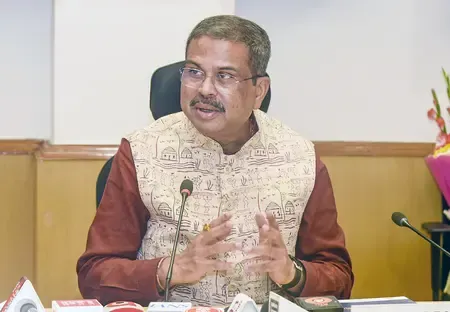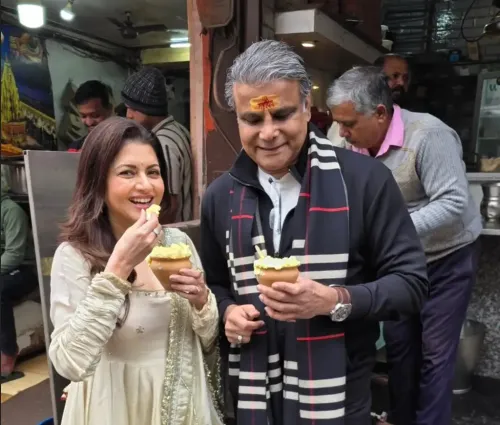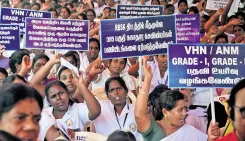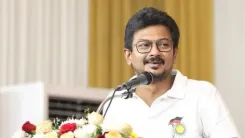SC Advocate Mahesh Jethmalani Supports V-P Dhankhar’s Bold Critique of Judicial Overreach
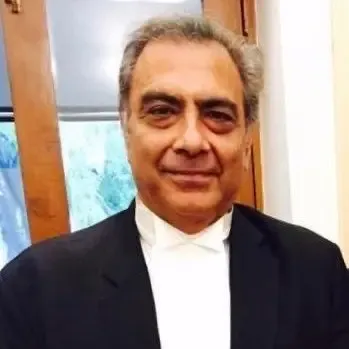
Synopsis
Key Takeaways
- Jethmalani defends V-P Dhankhar's views on judicial overreach.
- Kapil Sibal criticizes Dhankhar's remarks as unconstitutional.
- Concerns raised about judicial transparency and corruption.
- Calls for reforms in judicial asset declarations and accountability.
- Potential clashes between the judiciary and executive highlighted.
New Delhi, April 18 (NationPress) Following Vice President Jagdeep Dhankhar's open criticism of the Supreme Court’s recent ruling that imposed a three-month timeframe for the President and governors to act on Bills awaiting assent, a fervent debate has ignited within political and legal circles.
Former Union Law Minister Kapil Sibal, a senior member of the Rajya Sabha, denounced the Vice President’s statements as “unconstitutional”, expressing profound concern over what he termed an unprecedented action.
“I have never witnessed a Rajya Sabha chairman making political declarations of this nature,” Sibal remarked.
In defense of Jagdeep Dhankhar, senior Supreme Court advocate Mahesh Jethmalani utilized the social media platform X to elucidate the legal grounds for the Vice President’s assertions.
“While some might question the constitutional propriety of a symbolic second head of the State entering the fray between two branches of government, highlighting a clear constitutional flaw (the VP is also a seasoned jurist) that Article 145(3) mandates a 5-judge Bench to interpret constitutional provisions, making the 2-judge Bench ruling a nullity, is indeed part of the Vice President's constitutional duty,” Jethmalani posted.
He expanded his critique by voicing concerns regarding the judiciary's recent conduct.
“In recent times, various issues have coalesced to foster public perception that the Indian judiciary is lacking in transparency and accountability, particularly regarding sensitive matters involving itself, with judicial corruption being a primary concern,” he stated.
Jethmalani referenced the ongoing #JusticeYashwantVarma controversy, which has led to calls for judicial asset declarations and a stronger framework to address allegations of corruption within the judiciary.
“The asset declarations by judicial officers, including those of the #SupremeCourt, the discontinuation of merely transferring errant judges to different courts, and subjecting allegedly corrupt judges to criminal inquiries and possibly investigations by ombudsmen such as the #Lokayukt and #Lokpal are essential steps,” he elaborated.
He also highlighted worries about judicial overreach, especially in private law matters, where courts have encroached upon executive powers. “There is a growing public perception that the higher judiciary is intruding into areas that should be the executive's domain,” he added.
“In matters related to private law (for instance, where courts invoked Articles 14 & 21 to invalidate unilateral government arbitration clauses disregarding freedom of contract), the executive could circumvent a confrontation by forbidding arbitration involving the government except in low-stakes contracts,” Jethmalani explained.
Specifically addressing the Supreme Court’s recent ruling concerning gubernatorial delays in granting assent to Bills, he cautioned of a looming clash.
“The recent ruling by a 2-judge Bench of the Supreme Court, which established a three-month deadline for the #PresidentofIndia to address Bills reserved for assent by the #GovernorofTamilNadu, was destined to provoke significant controversy,” Jethmalani noted.
He commended Vice President Dhankhar for “taking a bold stand.”
“It required the indefatigable and Honorable #VP of India #JagdeepDhankharji to step forward.”


